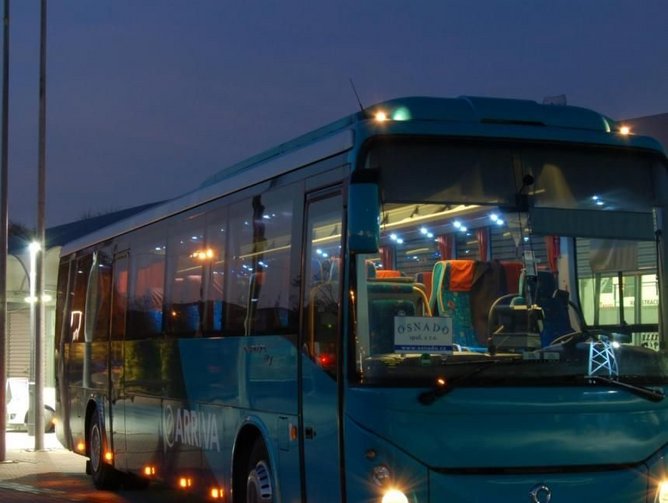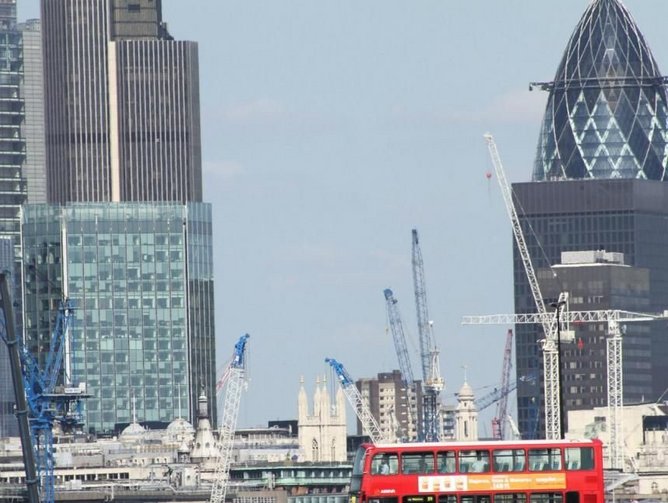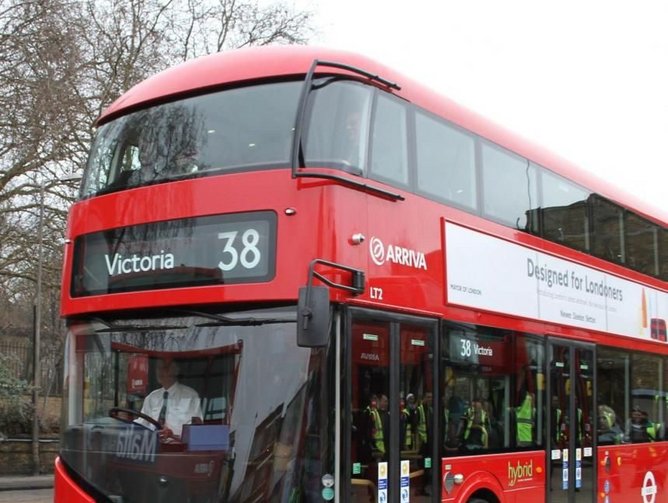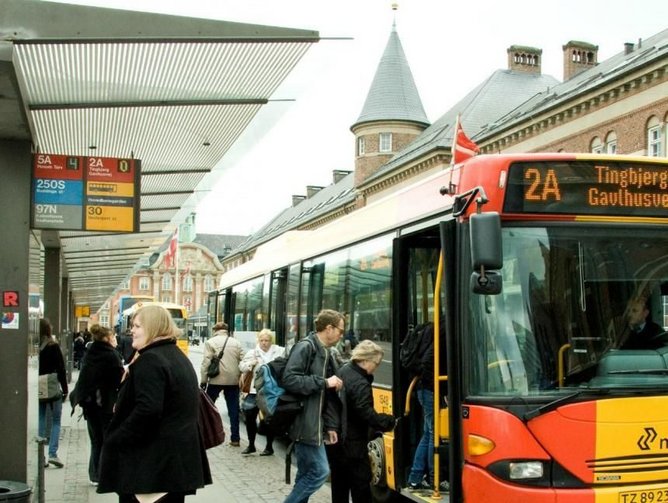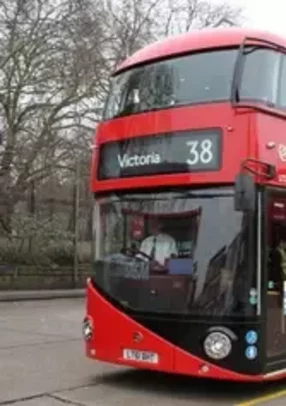Arriva Group is a market leader in the European public transportation sector, with successful operations across 14 different European countries.
The company operates over 20,000 buses and around 1,000 train sets, which is a cross platform system that accommodates both cars and/or driving units and trams, as well as up to 600 trains. Needless to say, since Deutsche Bahn acquired Arriva Group in 2010, the company has grown exponentially. This domination is particularly evident in the UK, one of the biggest markets for Arriva.
“Most people probably aren’t aware that we operate a third of the London Buses, and when you consider the amount of buses that run across the whole of London, we do go silently unnoticed.” Says David Loseby, Asset Management Director of Arriva UK.
Strength in numbers
Arriva is a company on the up. The number of assets Loseby and the company operate with is ever changing.
“Going unnoticed is part and parcel of our operations and in each country it will vary from only a handful of depots to here in the UK where we have over 250,” he adds. “The country we are working in will determine how large our operations are. Because we are a growing company, the number of assets is increasing with every quarter.”
Loseby joined Arriva Group three years ago with a focus on pooling together procurement activity across all of the European operations, including the UK. As with any growing company, his role has evolved over time. “I now work with the company on investing in resources and training, development, tools and operation systems,” he explains.
One particular system that Loseby has played an integral role in developing is a matrix management structure across all Arriva functions in engineering, fleet and procurement. This approach places a virtual team in each country, and within each team there are people who are dedicated resource managers that work together to create a network across all of Arriva’s services.
Since the start of the year, Loseby has seen his role evolve further, playing what he calls the “architect” in group engineering, environmental and sustainable developments within the CSR and responsible/ethical procurement aspects of the company.
“I am someone who sets out the business requirements that we need to follow to operate effectively,” Loseby says. “This is achieved through ‘inputs’ and ‘outputs’ into the system and how we can call upon that information to make effective management decisions.”
With such a large supply chain within the UK and across Europe, how does Arriva utilise its assets to maintain its commitment to providing the best customer experience for more than 2.2 billion passenger journeys each year and stay ahead of the game as industry leaders? By integrating all transportation services together to create a fully rationalised operator service.
“We operate across all transport forms,” Loseby states. “Arriva is more of a mobility provider as opposed to a bus provider, we connect the different modes of transport and try and find a more integrated solution.”
“We have a significant number of makes and variations of buses, within the context of supply chain rationalisation – we can’t sustain this. Hence, we now have a core of bus manufacturers and what we are trying to do going forward is to make sure we only procure from our key supply chain partners.”
One aspect of Arriva Group’s supply chain is the provision of spare parts, maintenance, technical support and diagnostic equipment and Loseby believes that working with this core group of partners is what will keep Arriva at the top of the pile.
He explains: “It’s about trying to make sure we work with our supply chain partners in a more effective way, so they can access the right spare parts or the best diagnostic equipment across all of our garages and depots. By rationalising our supply chain, the fewer vehicles and variants we have the more effective and efficient we can be as an operator.”
Since Loseby has been with Arriva, he has helped integrate a code of conduct across all operations. This is a mandatory requirement in the company’s approach towards responsible, sustainable and ethical trading. It is built upon the principles of the UN Global Compact agreement and Loseby has helped incorporate this into a code of conduct that marries neatly with the ambition of Arriva Group.
“We have very much embraced it and made it fit for purpose for our output,” he adds. “This is what our customers, our passengers and what the transport authorities expect and I believe that we should be championing it in the industry.”
Implementing the code of conduct has allowed Loseby to gain a better understanding of the suppliers and people he works with, with key bus and car manufacturers adopting this level of good practice for years.
Technically speaking
Technology dominates the modern world. In no industry is this more apparent than transportation. Electronic cars were once deemed the future but it is clear to see that they are very much right here and now!
This huge boom in technological advancement has not gone unnoticed. In January 2014, Arriva buses trialled eight battery-electronic buses in the UK, exploring potential savings of up to 600 tonnes of CO2 emissions per year. It doesn’t stop there either. There are also 250 hybrid buses operating throughout the UK.
Arriva is committed to utilising more sustainable and efficient technologies, something that Loseby stresses is hugely important to the future of the industry.
“As a business, in order to progress and continue to offer the most effective and sustainable service, we have to examine the impacts of different technologies,” he says.
This is achieved through an open dialogue with manufacturers.
Loseby explains: “We hold discussions with key leading manufacturers on a regular basis and look at the way in which the industry is changing through technological advancements. We look at their R&D pipeline and discuss how to prioritise which developments we can focus on first, which ones to bring to market first from a monopolising perspective and how to refine and improve these ideas/designs to unlock the full potential.”
Standardising the industry
Arriva is heavily focused on creating a modularity and standardisation of designs – specifically on board technology. Through Controller Area Network (CAN) systems, Arriva is exploring how to utilise this system, which provides signals from different components from within the bus, allowing engineers to look at diagnostics to see how they can service and maintain the vehicle. The system also allows a clearer look at the performance of a vehicle, maximising the operator’s ‘vehicle up time’ potential.
Fuel efficiency is another key area for Arriva. “We are invested in companies who are at the forefront of fuel efficiency technology,” Loseby adds. “Our suppliers recognise that we have working relationships with key manufacturers and it is very important for us to discuss and gauge what they are seeing as far as technology, as well as what we are seeing,”
Over the last three years there has been a significant increase in connection ports for charging electric vehicles and buses in particular. With this increase Loseby feels that the industry is facing a situation where there will be too many different ports.
“This is simply not healthy for the industry,” he says. “Standardising this would present a connector that would bring interchangeability across all systems which will allow us to think more long term.”
To the future
Arriva Group shows no signs of slowing down. In April 2016, Arriva Rail North, a subsidiary of Arriva Group, began operating Northern Rail train services following a successful bid in December 2015. Northern Rail is one of the largest service providers to the north of England, the largest train service outside of London, and through this franchise with Arriva, will see over £1bn of investment to improve the service over the next nine years.
Arriva Rail North will look to invest £1.2 billion on 285 new trains, introduce new rolling stops and refurbish the existing fleet, a significant investment in the customer experience.
“The facts are that we are putting new rolling stock and significant investment into Northern Rail over the next nine years, which speaks to the way in which the Government wants to create the ‘Northern Powerhouse’ in the UK and it’s an affirmation of the investment needed to bring it [Northern Rail] where it needs to be,” adds Loseby.
Asset management on such a large scale will inevitably bring with it difficulties, challenges and obstacles which Arriva must overcome. Working across different localities, one of the things that Loseby finds most challenging is striking the right balance between the direction of the company and the direction of the localities.
“You have to have an open and listening dialogue with all of the operations, because if you don’t you’ll end up with a central function that doesn’t understand the local business,” Loseby adds.
It is this balance, between what the local passenger, the local transport authorities expect, and what Arriva can offer in terms of competitive advantage that will maintain Arriva’s status as Europe’s largest transport operator.
